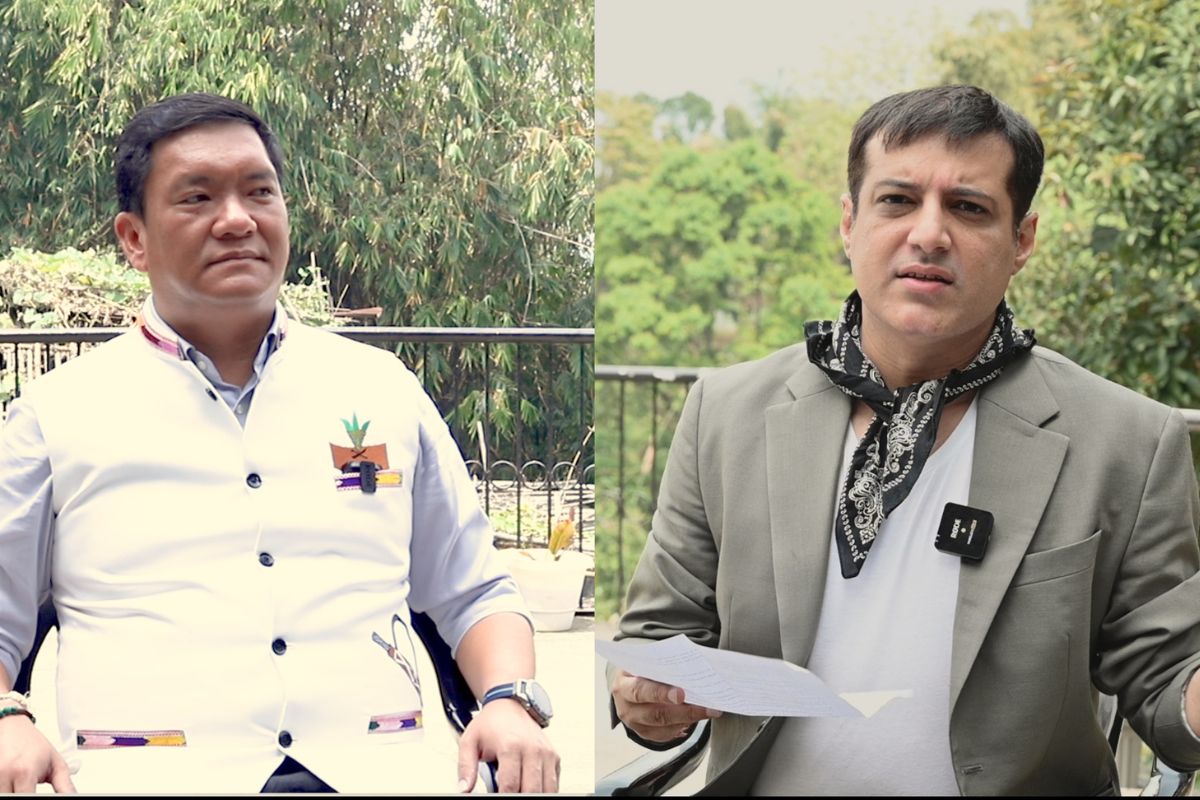


Congress leadership accepted the partition of the country on a religious basis reluctantly. It believed that a united India based on a reconciliation of communal balances would create a weak federal state held permanently hostage to communal conflict. This thinking had made Congress reject Cabinet Mission Proposals earlier in 1946.
Even while accepting partition of the country, new Indian state refused to accept that Muslims were a ‘separate nationality’ and needed a state of their own. This was the reason it did not find that the continued stay of Muslims in India and accession of a Muslim-dominated Kashmir conflicted with its worldview. Also Read: Time To Open Dialogue With Kashmiri Pandit Leadership
Pakistan, on the other hand, vigorously pursued the two-nation theory. It sought to create disaffection among Muslims who chose to stay back in India and staked its claim on Kashmir on a communal basis.
Accession Background
Pt. Nehru lacked a sense of realism. He ignored the circumstances that facilitated the accession of Kashmir to India. It was a fluid situation in 1947. India had two advantages.
One, the ruler was a Hindu. As per the partition plan he had the sole right to decide the issue of accession. Maharaja Hari Singh made up his mind to join India soon after the June 1947 visit of Mountbatten to Kashmir. He was alarmed by Mountbatten’s suggestion to join Pakistan. Since the issue of accession of Hyderabad and Junagarh, two important princely states were pending settlement Maharaja Hari Singh played cautiously. He did not want to allow his state to be used as a pawn on the chessboard for the settlement of accession of Hyderabad and Junagarh. Also Read: Govt Must Reach Out Across Kashmir’s Silence
Secondly, the ‘Quit Kashmir Movement’ launched in May 1946 by National Conference had temporarily shifted focus of Kashmiri Muslims from sub-continental communal question to a more immediate local issue-political power to Kashmiri Muslims.
Invasion by Pakistan to grab Kashmir forcibly left no options for Sheikh Abdullah and National Conference but to join Indian efforts in throwing out the Pakistani invaders from Kashmir valley. It was for his survival that Sheikh Abdullah took a strong anti-Pakistan stand during the crucial days of 1947.
Nehru’s Blunders
Nehru blundered on two counts. One, he ignored that Sheikh Abdullah subscribed to regional communal Muslim sub-nationalism, a variant of politics of the Muslim League. Secondly, Nehru overlooked that only as long as Kashmiri Muslims stayed away from communal identity politics, they would have an emotional connection with India. In case communal identity politics took precedence, they would feel alienated.
Nehru’s decision to agree to the plebiscite to ascertain the wishes of Kashmiri Muslims was disastrous. It never occurred to him that Pakistan would make a plebiscite as a referendum on Hinduism versus Islam. Plebiscite demand communalised Kashmiri society and polity at all levels and created stirrings of first secessionist feelings in Kashmir. Even local communist groups got polarised along communal lines. The group led by Mohiuddin Karra, which had played an important pro-India role earlier, openly batted for Pakistan. His campaign came to be called the ‘Fitre-i-Rohjan’ movement.
Plebiscite demand reopened the issue of accession. The top leadership of the National Conference began wriggling out of accession. It communalised the issue of accession and integration. It sought restriction of federal powers by linking it with communal Muslim sub-nationalism. Besides demanding semi-sovereign status for J&K it asked for Muslim precedence in all spheres – politics, economy, and administration.
The political leadership of GOI succumbed to both the communal demands – incorporation of Article 370 in the constitution and granting Muslim precedence. Article 370 sowed seeds of communal separatism. Muslim precedence created a vested interest in using communalism as an instrument of political blackmail. Though leaders like Bakshi Ghulam Mohammad and GM Sadiq were not eager for dilution of Indian sovereignty for ideological and situational reasons yet they pursued Muslim precedence with all seriousness. Rising communal consciousness created a favourable situation for the growth of Jamaat Islami and collaboration between communal and fundamentalist elements. This reached a new level during the chief ministership of Syed Mir Qasim.
Congress leadership supported Muslim precedence and promotion of Jamaat Islami as part of its Kashmir policy. Jamaat Islami became a key instrument for facilitating cross-border terrorism in the 1980s and thereafter.
Despite strong counter-insurgency efforts, successive governments after 1990 failed to bring durable peace for two reasons. One, these continued to promote variants of Kashmiri Muslim sub-nationalism. The result was the integrity of administration was compromised and separatist feelings among people consolidated.
The Prospect
Two things need to be done to contest two-nation theory politics in Kashmir.
One, delegitimise communal sub-national politics and facilitate the emergence of alternate democratic non-communal politics. Two, secularise Kashmir by reviving the pluralism and historic identity of Kashmir to de-emphasise communal political identity.
(Dr Ramesh Tamiri is a researcher on the history, politics and culture of Kashmir.)
[Disclaimer: The opinions, beliefs, and views expressed by the various authors and forum participants on this website are personal.]
